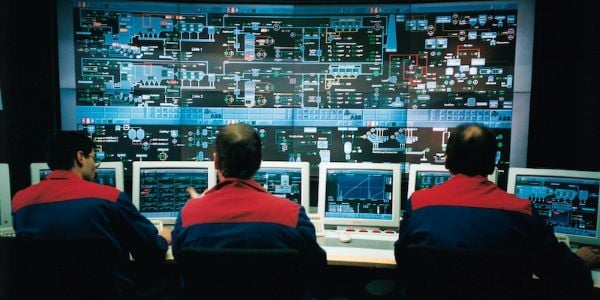
The Future of Offshore Operations: AI and Predictive Analytics in DCS
Offshore oil and gas production is entering a new era. Floating Production Storage and Offloading (FPSO) units and offshore platforms face constant pressure to maximize uptime, reduce costs, and enhance safety. Traditional control systems are reliable, but the next leap forward comes from artificial intelligence (AI) and predictive analytics integrated into the Distributed Control System (DCS).
This article explores how AI in DCS offshore operations is reshaping the industry, and why consultants and operators should prepare for this digital transformation.
1. From Reactive to Predictive Operations
Historically, DCS systems have been reactive—operators monitor alarms, respond to faults, and make decisions based on real-time process data.
With AI and predictive analytics, offshore platforms can move toward proactive operations, where the system:
-
Detects anomalies before failures occur
-
Predicts equipment breakdowns with high accuracy
-
Suggests optimized operating parameters for efficiency
This reduces unplanned shutdowns and improves asset reliability.
2. Predictive Maintenance in Action
One of the most valuable applications of AI in DCS offshore is predictive maintenance. Instead of relying on fixed maintenance schedules, AI models use live process data and historical performance trends to:
-
Predict pump, compressor, or turbine failures before they happen
-
Schedule maintenance only when needed
-
Extend the lifespan of critical offshore equipment
For FPSO operators, this means less downtime and reduced operating costs.
3. Enhanced Safety Through Early Warnings
AI-powered DCS systems can also improve safety. By analyzing thousands of data points in real time, the system can:
-
Identify abnormal conditions that might indicate leaks, fires, or unsafe operations
-
Trigger preventive actions in the Emergency Shutdown System (ESD) or Fire & Gas System (FGS)
-
Support operators with decision-making under pressure
This adds an extra layer of protection to offshore assets.
4. Optimizing Production Efficiency
AI algorithms can optimize process control loops beyond human capability by:
-
Reducing energy consumption
-
Balancing production rates with minimal flaring
-
Maximizing yield while maintaining safety margins
This is particularly valuable on FPSOs where space, energy, and resources are limited.
5. The Road Ahead for Offshore Operators and Consultants
While the benefits are clear, integrating AI in DCS offshore comes with challenges:
-
Data quality: AI models require reliable and clean historical data.
-
Cybersecurity: Increased connectivity must be safeguarded.
-
Change management: Operators need training to trust AI-driven insights.
By working with the right system integrator, FPSO operators and consultants can implement AI solutions step by step—starting with predictive maintenance, moving toward advanced optimization, and eventually creating fully autonomous offshore systems.
Conclusion
The adoption of AI in DCS offshore operations is no longer a distant vision—it’s happening now. FPSOs and offshore platforms that embrace predictive analytics and AI-driven control systems will achieve greater uptime, lower costs, and enhanced safety.
👉 Are you ready to bring AI and predictive analytics into your offshore control systems? Contact us today to explore how we can help you future-proof your operations.
Keywords: DCS, ICSS, Platform
Contact: +6017-347 5015 (Faiq:Head of DCS Team)
